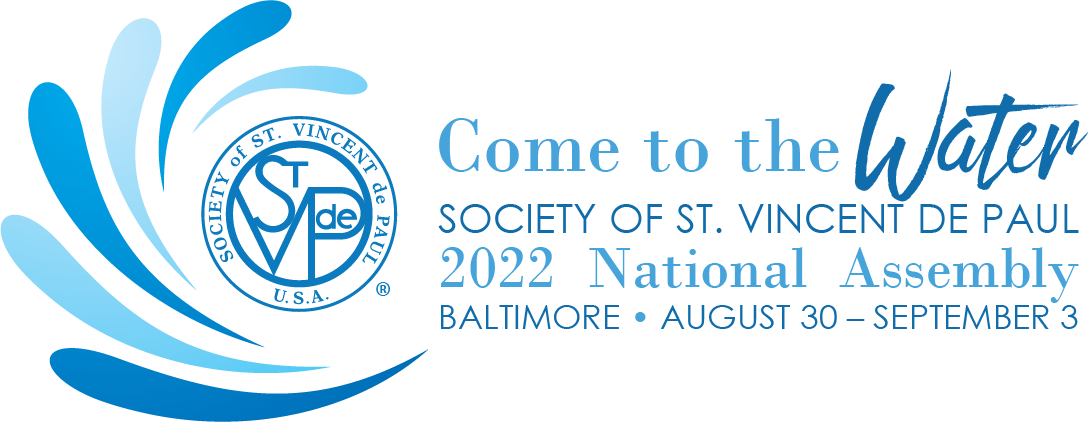Registration now open for the 2022 National Assembly! Happening in Baltimore, Maryland at the Marriott Baltimore Waterfront from August 30 – September 3.
Don’t miss this amazing agenda, and the opportunity to gather together with Vincentian Family & Friends. Register today, and don’t forget to submit your ideas for the Best Practices Poster Session!
National Assembly Links
Reservation Information
- Overnight accommodations are available at the Marriott Baltimore Waterfront, $145 per room, per night, plus taxes. Reservations can be made online at Marriott Waterfront, or by contacting them at (410) 385-3000.
- Deadline for making a reservation at the group rate is August 9, 2022; after this date, room rates will be based on the prevailing rate.
- The Marriott Baltimore Waterfront is located in downtown Baltimore in the Harbor East neighborhood, approx. 12 miles from Baltimore/Washington International Airport (BWI).
Planning Your Trip to Baltimore
- Arrive early or stay late and enjoy all that Baltimore has to offer, plus special Baltimore Tours set up by our Host City Team. Check out the agenda.
- Exploring downtown Baltimore is easy, with dining, shopping, and entertainment all within walking distance from the hotel.
- Or jump in a cab and take a trip to one of the many historical sites Baltimore has to offer, including the Ft. McHenry National Monument, Edgar Allen Poe House & Museum, take the Baltimore Trolley Tour, and so much more.
- Take in a baseball game! Click to view games and times, with special Baltimore Orioles Ticket Pricing.
- Cruise the Bay on one of their many boat cruises & charters.
- Visit a brewery, winery, or a local restaurant.
We hope to see you in Baltimore!





